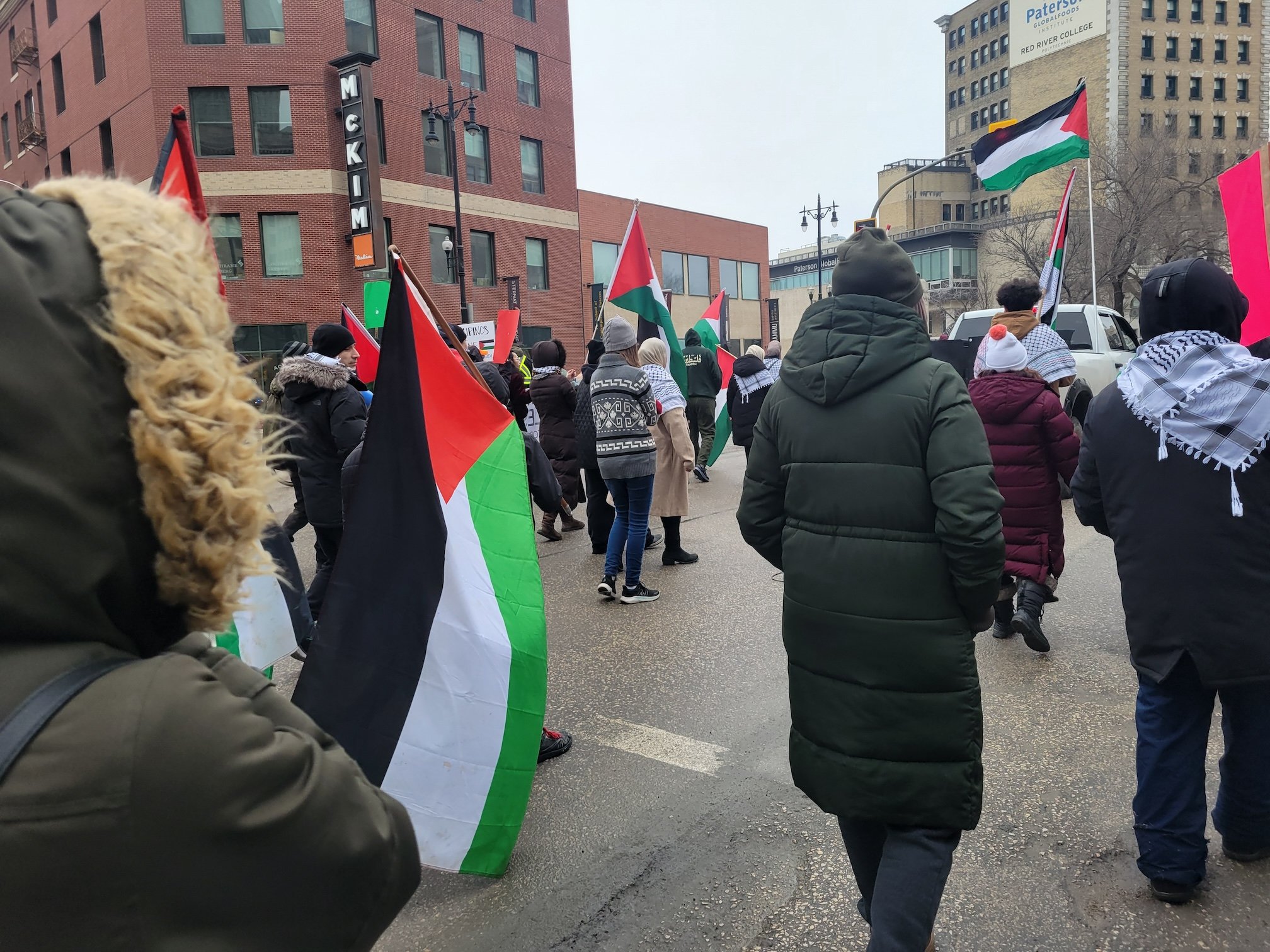
Who We Are
We are a Canadian Christian voice
for Palestinian liberation.
Canadian Friends of Sabeel is a national ecumenical response to the call of Palestinian Christians for solidarity. Through education and engagement, we support the struggle for equality in justice, freedom, and human rights of Palestinians living under apartheid and the illegal Israeli military occupation. With partners around the world, we work non-violently for a just and durable peace for
Palestinians and Israelis.
Who We Are
Who We Are
Our Commitments
Our Mission
In response to calls for solidarity from the Palestinian Christian community, we faithfully engage, educate and equip the Canadian Christian community and our partners as we pursue our shared calling and vision.
Our Vision
The Canadian community and our partners are energized as we pursue a durable peace – rooted in justice, freedom, equal rights, and the principles of nonviolence – for all Palestinians and Israelis.
Our Values
Truth. Justice. Solidarity. Our efforts are guided by the Christian values and principles of non-violence, justice, peace, solidarity, and reconciliation. We work with communities of all faiths and like-minded organizations with similar values to tell the truth.
Who We Are
Our Story
Canadian Friends of Sabeel emerged from the efforts of a group of Anglican clergy and friends, after they visited the Occupied Palestinian Territories in late 1997. The group was shocked by what they witnessed of the cruelty inflicted on Palestinians by the realities of the Israeli occupation. A host from the Sabeel Palestinian Liberation Theology Center asked, “So now you’re stuck with the truth; what are you going to do about it?” Canadian Friends of Sabeel (CFOS) was founded in 1998 in response to that question. Our mission is to accompany and support the Sabeel Center and its work through faith-based education, advocacy and solidarity in Canada.
CFOS acts out of a Christian faith-based perspective. We believe that God desires all God’s children to live together in peaceful co-existence, and we believe God’s son Jesus invites us to follow him by practising justice, standing with the poor and oppressed, and supporting nonviolent struggles for freedom, liberation and self-determination. We attend to the call of Palestinian Christians to bear witness to the ongoing injustice they experience under Israeli occupation and apartheid and to practise “costly solidarity” with them. We work with other faiths and non-faith groups that share our values and concerns.
Over the years, CFOS has engaged in a wide range of activities to build awareness and support for Palestinians, and especially the Palestinian Christian community. We have hosted conferences and webinars, organized speaking tours, held theater productions, and developed films, photo exhibits, videos and other resources. We have raised funds for humanitarian assistance projects in Gaza. A primary force behind Canadian Friends of Sabeel for its first twenty-five years was Father Robert Assaly, who died too young in 2023. We are grateful for his legacy of courage and activism that continues to inspire our work.
Canadian Friends of Sabeel is a Canadian Registered Charity legally known as NECEF Sabeel Canada #11924 6742 RR0001.
Who We Are
Meet our Team
Sabeel Jerusalem
Our Wider Family
Sabeel Ecumenical Liberation Theology Center (sometimes referred to as Sabeel Jerusalem) was established in 1989 by Palestinian Anglican priest and theologian Rev. Naim Ateek.
All Photos: Sabeel Jerusalem
Sabeel Jerusalem emerged as a bold and prophetic expression of a theology of liberation for Palestinians living under Israeli occupation. Within the Palestinian context, it strives to foster a spirituality of peace based on love, justice, nonviolence and liberation. Within the global context, it promotes awareness of and international solidarity with the Palestinian struggle. The name Sabeel is Arabic for “the way” or “spring.”
Canadian Friends of Sabeel is part of a large family of “Friends of Sabeel” existing around the world.
Global Family of Friends of Sabeel
Kumi Now
‘Kumi’ means ‘Rise Up’. A program of Sabeel, Kumi Now offers a weekly on-line seminar focussing on an issue that affects Palestinians in the occupied territories. Its overall controlling themes are inclusivity, justice, and non-violent resistance. Its overall goal is ‘to raise awareness on Palestine and exert pressure on the powerful decision makers of the world to do what is right in order to end the occupation in order to build a just peace’.
Our Partners
Canadian Friends of Sabeel partners with Christian denominations and church organizations across Canada.




















